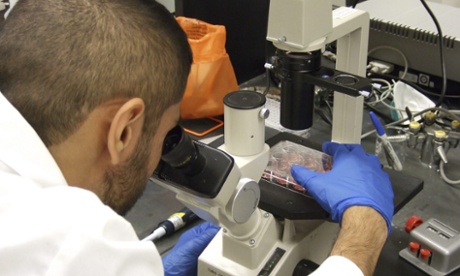Professor says government should be as quick to help the WHO stop the outbreak as it was to join efforts against Isis in Iraq

Australia must provide greater support to tackle the ongoing Ebola crisis in west Africa, the head of the Australian Medical Association has said.
With the death toll from the virus close to 2,300, Professor Brian Owler said the government needed to outline how it would help the World Health Organisation (WHO) in tackling the worst Ebola outbreak in history.
“What we are witnessing is an evolving humanitarian crisis in west Africa and the international community needs to step up its support,” Owler said on Wednesday.
“If we don’t, the human cost will be enormous, there will be an increased spread to other areas and I’m sure the call will come from WHO in the next few days for Australia to lend its support so we need to be ready.”
Last month, the government announced it would contribute $1m to the WHO to help control the outbreak.
But Owler said greater efforts were needed and that the government should support any Australian medical staff wanting to volunteer in west Africa and cover their costs, and also provide mobile beds and equipment.
“There was no hesitation by the government in providing support to stop the Isis terrorists in Iraq,” he said.
“I’m not disputing that support but we must also provide resources to west Africa, because their lives are as important as anyone elses.
“This outbreak is in areas with very limited public health resources where health systems are overrun and healthcare workers are dying.”
The office of the foreign affairs minister, Julie Bishop, was not immediately available for comment.
However, a leading infectious diseases physician and professor at the Australian National University, Peter Collignon, said while the government had an obligation to help, it would be difficult.
“There are many practical issues that need to be worked through,” he said.
“For example, most of the areas affected are French-speaking and it is so important to be able to communicate with people and educate them about the virus. It wouldn’t be a good idea at all for Australian volunteers to just run off and go without training.
“We also barely have a relationship with these countries affected, so any response must be co-ordinated through the WHO otherwise we run the risk of wasting resources.”
There could be resentment among local communities if care wasn’t delivered by volunteers in a culturally sensitive way, Collignon said. He praised Australia’s chief health officer, Professor Chris Baggoley, for liaising with the WHO and taking a careful and considered approach.
Last week, the United Nations’ senior leadership on Ebola said the outbreak could be stopped within six to nine months, but only if there was a “massive” global response.
Previous Ebola outbreaks had affected central Africa, but this was the first time it had affected West Africa, an area with weaker medical resourcing and where health staff are less experienced at tackling the virus, making it difficult to contain.
Funeral practices in the region, where people touch the deceased, was also speeding up the spread, with the virus largely transmitted through close contact blood, secretions, organs or other bodily fluids.
The haemorrhagic virus causes fever, intense weakness, muscle pain, impaired kidney and liver function, and in some cases, internal and external bleeding. It has a death rate of up to 90% for people who lack fast access to intravenous fluids and hospital care.
